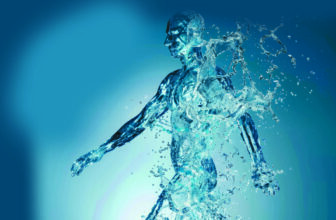
‘All I want for Christmas is . . . ?’
Christmas are my two front teeth’! What would be your ideal gift this Christmas? For some it may be the gift of sight, for others a new kidney or heart, for others the gift of a prosthetic limb. For the thousands who suffer in silence with cancer, dementia, MS, motor neurone disease and countless other diseases what do they long for at Christmas?
As one who is fortunate to not be in pain every day, my desire, if placed in that situation, would be for the gift of health. As scientific research continues to advance, two of the most important discoveries made in my opinion are those of epigenetics and nutrigenomics. Before you reach for your dictionary or close the magazine let me try and explain.
Epigenetics, simply put, is the study of biological mechanisms that will switch genes on and off. It’s the study of how your environment, both internal and external, causes genes to become active or dormant. Our belief used to be that we are born with a certain set of genes and that was final. Our understanding now is that what we eat and drink, where we live, how we exercise, how we sleep, our stress levels, interaction with other people and our chemical consumption all have the ability to cause genes to remain dormant (off) or active (on). Why is this important? Genes are the directors of our bodily processes, they provide instructions on how to make important proteins – complex molecules which trigger various biological actions to carry out life functions. The modification of our cells leaves marks called epigenetic marks and these are passed from one cell to another when they divide themselves and thus will be passed from generation to generation. In other words, how we live and eat now will also affect the generations to come.
Nutrigenomics is the study of how nutrition affects the expression of our genes (the switching on and off), and especially with regard to the prevention or treatment of disease. Since ancient times, humans have known that environment and food can interfere with an individual’s health condition, and have used food and plants as medicines. Hippocrates, a famous Greek physician, said ‘let food be your medicine and medicine be your food’.
With the advance of science, scientists started questioning if the interaction between genes and food bioactive compounds could positively or negatively influence an individual’s health.
The discovery of the interaction between nutrients and genes at a molecular level has aided the prescription of customised diets according to each individual’s genotype (their set of genes). These are both very new areas of research but the ramifications are potentially huge. The future looks so exciting!

With all this new information how can we give ourselves the gift of health? Here are my suggestions:
1. Eat a fistful of protein at every meal to balance your blood sugar and prevent those energy slumps and cravings for sweet things. Protein foods include lean red meat;fish; eggs; turkey/chicken; nuts and seeds; pulses and beans. Aim for grass fed meat twice a week max, and use free range eggs and poultry if you can.
2. Eat oily fish 2-3 times a week for your essential healthy fats. These are required for the brain and nervous system, to reduce inflammation in the body and will help with weight loss too. Remember SMASH fish (Salmon, Mackerel, Anchovies, Sardines, Herrings). Avocados, nuts and seeds are also full of essential fats.
3. Avoid sugar and refined carbohydrates as these are simple carbs: high calorie, low nutrient foods which cause blood sugar levels to fluctuate, possibly leading to insulin resistance. Complex carbs release energy slowly and help to maintain constant energy levels. They are high fibre foods and are especially important in promoting bowel regularity and helping to control cholesterol. Complex carbs include whole grains, vegetables and beans.
4. Eat 8-10 portions of vegetables and fruit a day, mostly vegetables, as these are high in vitamins, minerals and antioxidants; vitally important for all the metabolic processes in the body and for mopping up free radicals which can lead to premature ageing and degenerative diseases.
5. Aim to drink enough water a day so that your urine is pale straw in colour. This includes herbal teas but not coffee, tea or alcohol as these dehydrate the body.
6. Aim for a good sleep routine as sleep is vital for the body to repair itself.
7. Walk briskly for 20 minutes every day for your heart health.
8. Reduce your chemical load by cutting out processed foods, eating whole foods and using more natural body, household and skincare products.
For personalised nutrition and advice on genetics testing contact me: sue@thegenuinelivingcompany.com











